https://youtu.be/ioOPYOvoKng
These are the stocks to buy for the next 10 years
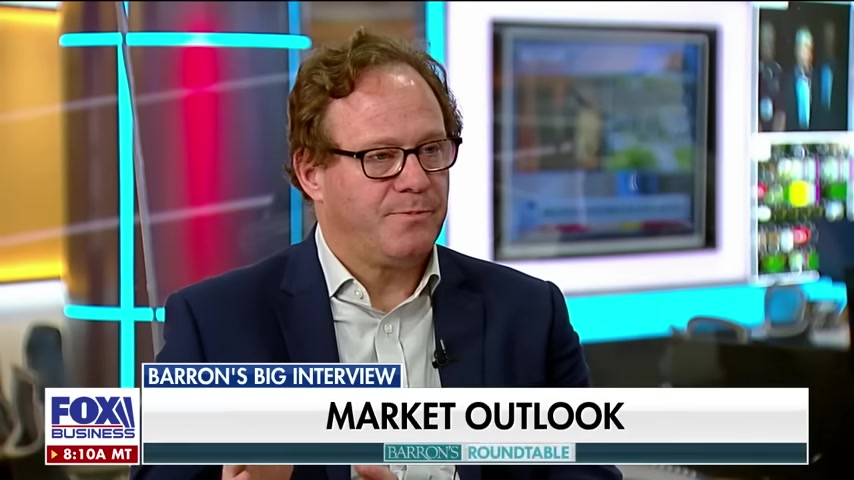
After more than 10 years of cheap money and surging stock prices , rates are rising and tech stocks have crashed .
What stocks should you buy for the next 10 years ?
Joining me now Gravity Capital Management founder and author of where the money is .
Adam Cecil Adam , thanks a lot for coming in .
Congrats on the book .
Appreciate it , Jack .
So let's start really big picture .
The NASDAQ is down around 30% .
The S and P came that close to a bear market .
How should investors be thinking about the market right here ?
Well , generally speaking , Jack , investors should be happy .
I mean , the stock market is a market .
It's a place to buy great businesses and many are on sale now .
It's the only market as Buffett says , where people get upset when things go down .
So you go in the best buy and you look for a TV , you're happy when the price goes down .
So you should feel this way about stocks .
On the other hand , as you suggest , there's been a lot of froth with the easy money policies over the last 10 years .
So you have to be very discriminating and it's really a question of separating the babies and the bath water ?
Ok .
Well , that's the trick , right ?
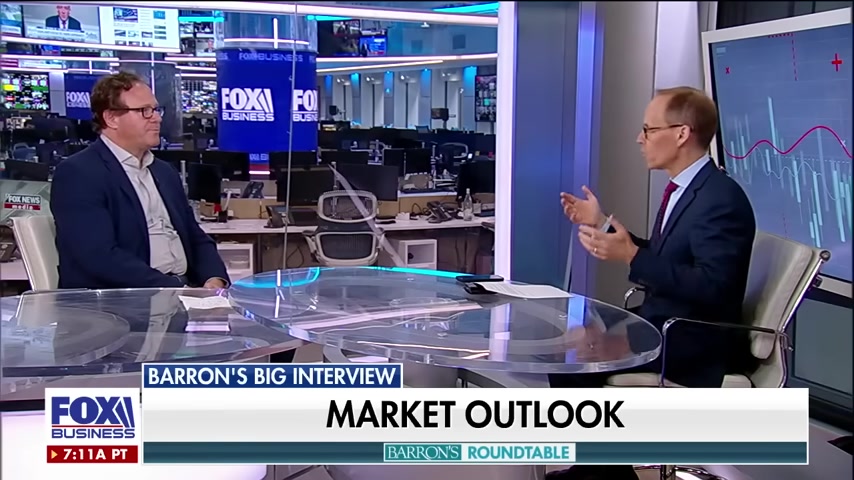
How do you pluck those babies out of the bath water ?
What are the hallmarks of a company that can thrive over the next decade or so ?
No matter what happens ?
Well , the question you should ask yourself that every investor should ask himself is actually very simple .
Is this business invulnerable to competition , have deep pocketed competitors taken a run at this business and failed .
And this is the whole concept of moats that Warren Buffett has given us .
It's just that as I say in the book , in the digital Age , what constitutes a moat and what constitutes a superior business is quite different than in the late 20th century .
And I love the way you take that analogy one step further in the book , you write about throwing alligators and sharks in the moat .
So nobody can cross it .
Give us some examples of these 21st century moats .
What would have been Coca Cola and Amex for Buffett ?
Well , two that I like right here , especially at these levels .
The first is alphabet .
You know , Google has a 95% share of market uh of search in on online search .
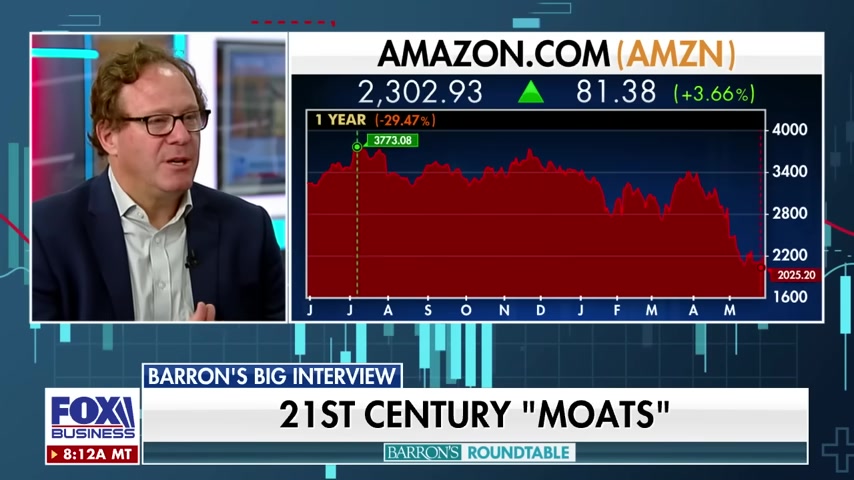
So , you know , being uh Microsoft spent 10 $15 billion trying to make a run at at Google couldn't do it less well known .
Amazon made a run at Google couldn't do it , couldn't build search Bezos told his people treat Google like a mountain , you can climb it , but you can't move it .
That's the kind of business you want .
Uh , you know , the other one that I love is actually Bezos is Amazon .
You know , they have almost 50% share of e commerce , which is itself growing .
And , you know , a few years ago Walmart tanked margins tried to make a run at Amazon and they have less than 10% market share .
So those are two proven battleships for the 21st century .
I want to ask you more about Amazon , but one more sort of big picture question .
So as wonderful as these companies are , the valuations are pretty steep by historical standards .
Now , stocks have had a great tailwind as bond rates have come down for 40 years .
What if we're in a situation where rates are rising ?
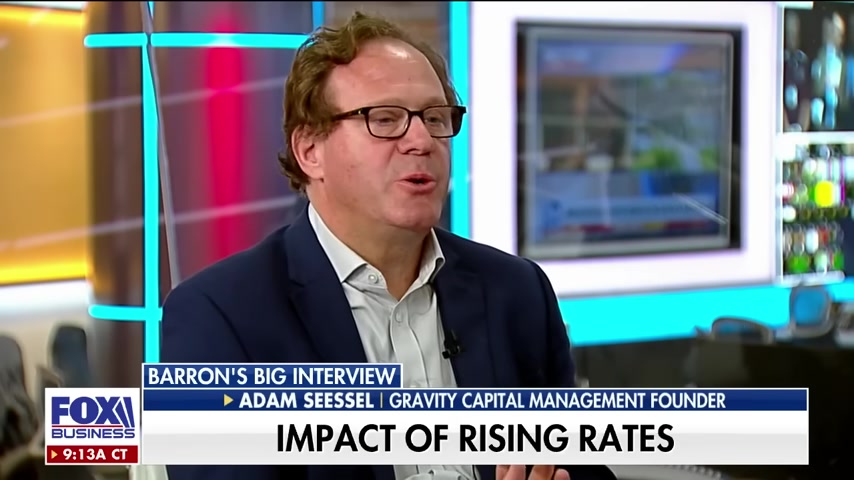
I don't know for the next 40 years , could valuations go back to the levels that they , where they were the eighties .
So even if you buy great companies , the valuations will continue to shrink .
Well , it's a fair point .
I mean , you know , interest rates are very important and interest rates are a head wind at least in the short term .
But , you know , I would turn it around and ask you a question .
You know , why are interest rates and inflation rising ?
Now ?
We've had easy money since 89 .
So we've had it for 10 or 15 years .
So the answer to me is pretty clear that it's COVID , you know , we had a tremendous demand stimulus from the government , putting money in people's pockets spending like drunken sailors themselves .
You also had the fed , of course , and then you had a supply slowdown in stoppages because of all the , you know , supply chain constraints .
So when you have more demand and less supply , guess what ?
You have inflation , but it's not structural .
In my opinion , it's cyclical , the structural pieces for inflation .
In my opinion , are quite benign .
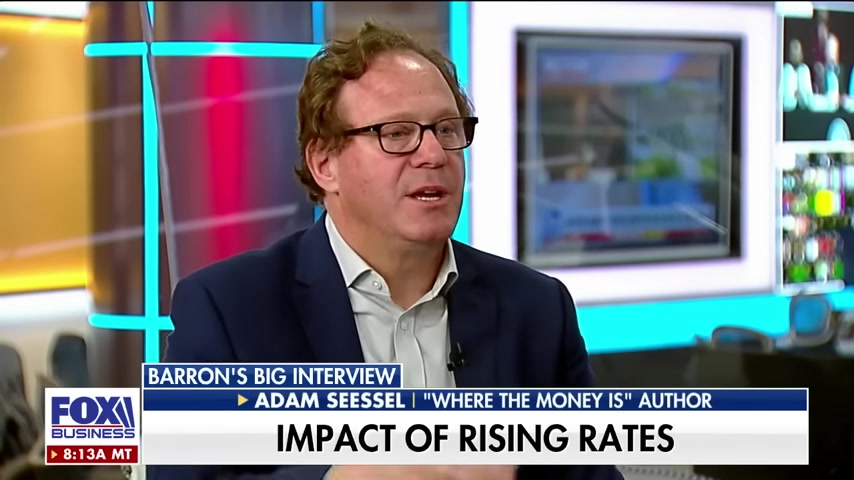
Still , you ask yourself why have we had 40 years of low rates and low inflation in a time of easy money .
And it's because one globalization which is teetering a little bit with Russia and China and so forth .
But I think it's still pretty much intact .
And two as I write in the book , Tech is hugely disinflationary .
I mean , before Google , we had to buy maps , we had to buy encyclopedias and you just run examples like that throughout the economy and that's not going away .
Google is free .
Google is free for everybody .
Let me ask you one question about Amazon though .
We got a few seconds left here .
I've seen headlines that Amazon is closing warehouse space closing stores .
That should be a little concerning to .
No , no , no , not at all .
Look , the job of a long term investor is precisely to arbitrate between those sort of short term headlines and the long term substance of what's actually going on .
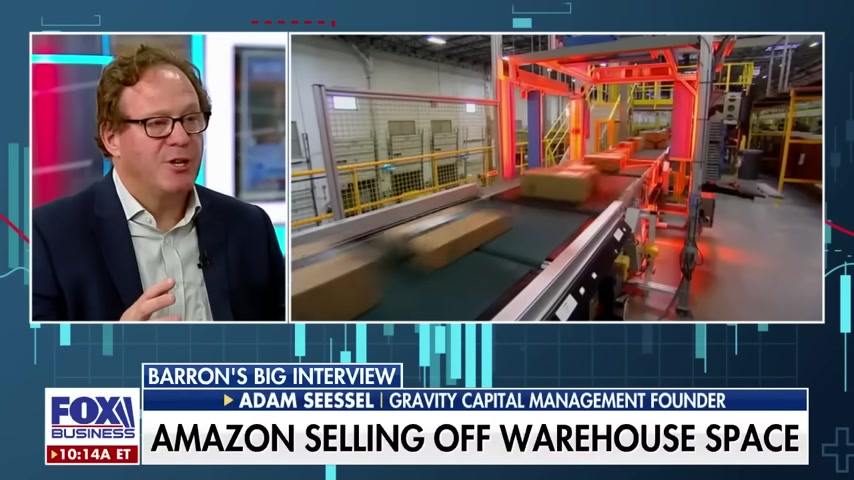
So Amazon has spent 25 years building out their infrastructure , which no one will ever match .
And in the last 24 months during COVID , they doubled their infrastructure again .
Now sales grew only 65% .
So they over built a little bit so we can forgive Amazon for missing the mark in the worst health crisis in 100 years .
But a they're going to soak up that demand , that excess , I should say excess space pretty quickly .
And b yeah , they're paring back a little bit .
But that's the headline .
The substance is that no one's gonna catch .
Amazon .
Amazon is going to keep growing and it's going to be protected by a very deep and durable moat .
Adam Cecil .
No wonder Bill Ackman liked your book so much .
Thanks for coming in .
Thank you Jack .
Are you looking for a way to reach a wider audience and get more views on your videos?
Our innovative video to text transcribing service can help you do just that.
We provide accurate transcriptions of your videos along with visual content that will help you attract new viewers and keep them engaged. Plus, our data analytics and ad campaign tools can help you monetize your content and maximize your revenue.
Let's partner up and take your video content to the next level!
Contact us today to learn more.